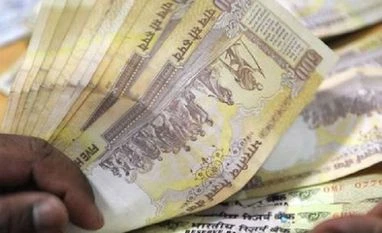The onset of winters, followed by Christmas and the New Year, is a peak season for the travel industry, inbound, outbound and domestic. This year, however, the prospects of this peak season look subdued as fallout of the demonetisation drive. The consequent liquidity crunch is especially impacting the large offline travel operators who mostly work on cash for flights, hotel bookings and packages.
An immediate impact is being felt across the industry in new bookings while foreign tourists are troubled due to inadequate availability of local currency. “Foreign nationals are worst hit because they cannot go anywhere except airport to exchange their Indian Rupee currency notes. The impact has been more severe on encashments as banks and money changers do not have Indian currency notes to dispense as a result none of them is able to exchange Indian Rupees for foreign currency”, said Anil Khandelwal, chief financial officer at Cox & Kings.
The problem also impacts Indians travelling overseas since some forex dealers are seeking high premium for key currencies if one wishes to pay using Rs 500 and Rs 1,000 notes. Khandelwal said now many leisure travellers are using credit card to buy forex.
Archaeological Survey of India, which maintains leading historic monuments, has allowed the use of old Rs 500 and Rs 1,000 notes for paying entrance fees. But travel operators are struggling to convince state governments to relax the norms at state monuments and museums. “Tourists are seeking refunds and compensation from some of our members as they were unable to access the monuments in the initial days after the demonetisation. Why cannot government monuments have credit card facilities? We have also requested the government to allow foreign visitors leaving India to freely exchange Rs 500 and Rs 1,000 notes without caps,” said Rajeev Kohli, senior vice president, Indian Association of Tour Operators. Foreign tourists visiting destinations in smaller cities are facing more problems since most transactions in such areas happen in cash.
Itineraries are getting affected, industry executives said. “We believe the situation should ease next week. We do not expect large cancellations from leisure tourists. Business visitors may postpone trips but leisure tourists plan holidays 6-12 months in advance and will not cancel the trips,” said Homa Mistry, CEO of Trail Blazer Tours India.
The online travel industry, which is significantly smaller to the offline sector (run by conventional travel agents) has also seen some impact. “In the first few days after the demonetisation, we saw a decline in traffic to our site. Things are coming back to normalcy though it is a bit slow. The larger impact is on domestic travel where bookings usually last minute bookings happen,” said Sharat Dhall, president at Yatra, a leading online travel company. Dhall said inbound travellers are being advised to change money at the airport so that they have enough Indian currency.
"We have not seen any significant change so far as most of the people who travel with us pay through bank transfer/card. We have significant MICE business which anyways makes cheque/bank transfer payments," Khandelwal added.
The online travel industry is bullish about the growth prospects after the demonetisation is settled. “We are bullish on the prospects as a result of this demonetisation in the medium to long term,” said Dhall.
)